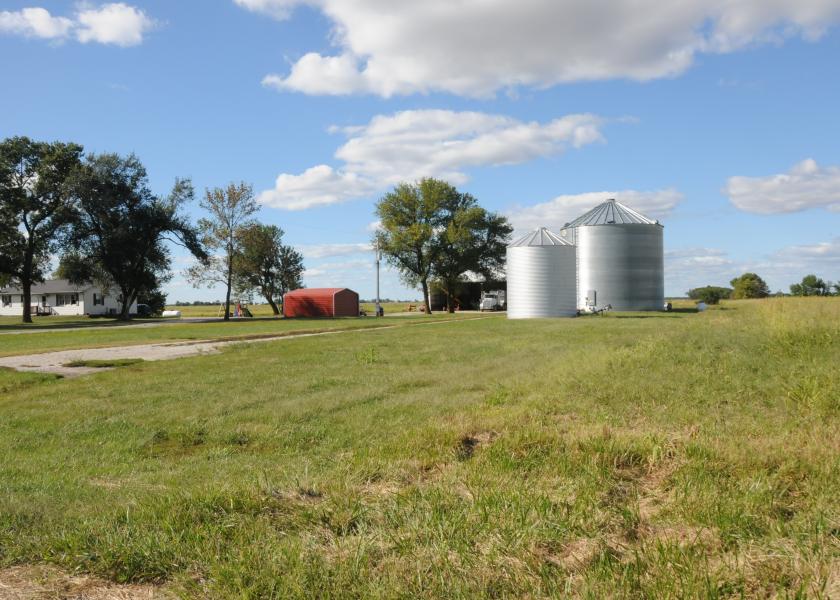Farmer Perspectives on Farm-Level Data Collection and Sharing

Several challenges prevent farmers from collecting and sharing data on their production practices with downstream supply chain organizations, such as food companies and retailers, according to new research from Farm Journal’s Trust In Food initiative and The Sustainability Consortium (TSC).
Farm-level production data plays a critical role in conservation and sustainability efforts for food, fuel and fiber supply chains. Despite this importance, according to previous TSC research, nearly 50% of food and beverage companies report having no visibility into the on-farm practices that produce the inputs they use.
To help close the gap between in-field practices and supply chain needs, Trust In Food and TSC surveyed American farmers on their perceptions of data collection and sharing. The resulting report, “Farmer Perspectives On Data,” highlights insights from nearly 400 farmers in more than 40 states.
Key findings include:
- 62% reported not using data collection and sharing software during the 2019 season; of those who did, only about 30% say the software meets all their needs.
- Lack of access to capital, equipment, training and reliable data networks are the biggest barriers farmers face in scaling up their on-farm data efforts.
- 71% of farmers said their primary ag adviser or consultant has never suggested increasing
on-farm data collection, data sharing or both. - 49% of farmers do not believe their customer has a right to know how they manage their farm.
- Responses to open-ended questions reveal downstream organizations enjoying greater financial benefits from farm-level data sharing than the farmers who provide that data is a major issue farmers consider when deciding to share their data.
- 74% of farmers implement conservation agriculture practices because they believe it is the right thing to do for the environment; 61% use conservation practices to ensure they pass on a profitable and viable farming operation to the next generation.
“The results of this report show growers value data collection and the environment and they implement conservation agriculture practices on their farms, but there are several surprising barriers to sharing farm data,” said Christy Slay, Director of Technical Alignment for The Sustainability Consortium. “TSC is committed to working on these issues and barriers with our partners to ensure farmers receive the value they deserve for protecting natural resources and that the sustainability story brands communicated to retailers and consumers is enabled by the farm data reported into TSC’s THESIS platform.”
Trust In Food presented its findings at The Sustainability Consortium’s Summit, April 28-30, 2020.
The report can be viewed at https://bit.ly/Farm-Data-TIF.
About Farm Journal
Farm Journal is the nation’s leading business information and media company serving the agricultural market. Started 144 years ago with the preeminent Farm Journal magazine, the company serves the row crop, livestock, produce and retail sectors through branded websites, eNewsletters and phone apps; business magazines; live events including conferences, seminars and tradeshows; nationally broadcast television and radio programs; a robust mobile text marketing business; and an array of data-driven paid information products. Farm Journal also is the majority shareholder of the online equipment marketplace, Machinery Pete LLC. In 2010, the company established the non-profit, public charity Farm Journal Foundation dedicated to sustaining agriculture’s ability to meet the vital needs of a growing population through education and empowerment.
About Trust In Food
Trust In Food is a purpose-driven division of Farm Journal dedicated to rebuilding consumer confidence in the U.S. agricultural value chain by partnering with farmers and ranchers to accelerate conservation agriculture practice adoption and maintenance benefiting land, water, air and farm businesses. It advances this mission through data science, research, strategic communications and Farm Journal platform in collaboration with conservation organizations, government agencies, agribusinesses, food companies and retailers, and other food system stakeholders. www.farmjournal.com
About TSC
The Sustainability Consortium (TSC) is a global organization transforming the consumer goods industry to deliver more sustainable consumer products. We are dedicated to improving the sustainability of consumer products. Our members and partners include manufacturers, retailers, suppliers, service providers, NGOs, civil society organizations, governmental agencies and academics. TSC convenes our diverse stakeholders to work collaboratively to build science-based decision tools and solutions that address sustainability issues that are materially important throughout a product’s supply chain and lifecycle. TSC also offers a portfolio of services to help drive effective implementation. The Sustainability Consortium has more than 100 members and there are over 2,000 users of TSC tools worldwide. www.sustainabilityconsortium.org







